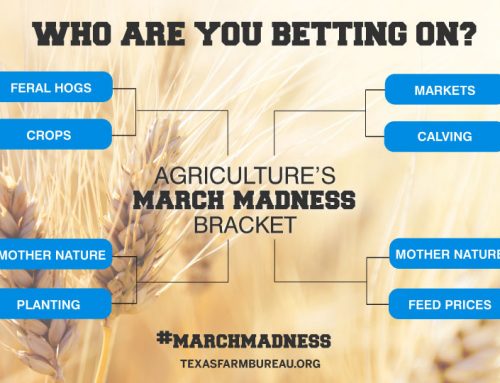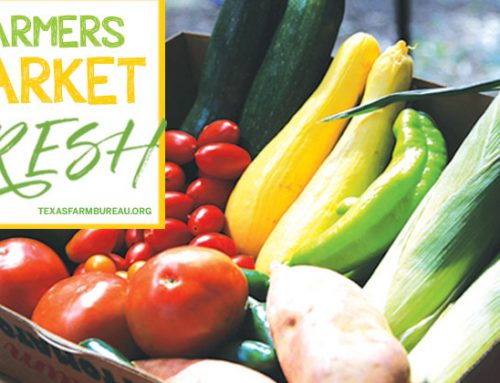By Nathan Smith
Last week, I posted a question about farmers’ markets on my Facebook wall. Within an hour, I had a lively discussion going among my friends about why they like fresh fruits and vegetables. But you don’t have to send out a survey to know that Texans love fresh produce. We also love to grow our own. As a kid growing up in the country, it was the norm to have our own vegetables on the table for supper every night during the season.
We used herbicides to keep the weeds out. We put down fertilizer to help the plants grow in sandy soil. We used safe pesticides to battle worms and giant grasshoppers. After picking the vegetables, we washed them thoroughly and cooked them properly.
It always surprised me how friends and family from larger cities would go crazy over our squash, tomatoes and peppers. For me, it was no big deal. Back then, I didn’t realize how lucky I was to eat food grown from a garden. Now that I live inside the city limits, I miss walking out my back door and picking my salad off the vine.
Among city-dwellers there is a renewed interest in home-grown vegetables—even if your home is in Dallas. Backyard gardening is made possible through various methods, including seed genetic improvements. Some people are expanding the backyard idea to grow a different kind of green.
And, if you dream of your own field of vegetables, you could be in luck.
Texas AgriLife Research recently published a study that suggests small-scale (less than three acres) vegetable gardens can even generate revenue. This study looks at land and labor costs, along with inputs like seed and fertilizer. It’s fairly comprehensive and covers the basics of growing startup costs and what a small-scale grower could expect to earn.
“What we found, bottom line, is that organic vegetable production on a small plot of land can be profitable,” Luis Ribera, a Texas AgriLife Extension Service agricultural economist, told The Brownsville Herald. “It’s a lot of work, but one family can earn a $45,000 annual salary on a three-acre plot.”
The AgriLife study was based on 30-50 different organic vegetable crops, which were sold through farmers’ markets, restaurants and a community supported agriculture program. While there are several factors that can impact any crop’s economic feasibility—especially the unpredictable Texas weather—a vegetable garden could make you some green.
Whether or not you make it a business, nothing beats a home-grown tomato on a hot, Texas summer day.
Happy gardening! We’d love to hear what you grow.











Leave A Comment